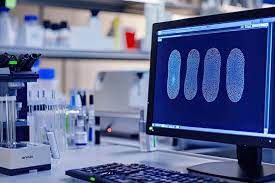Department of Forensic Medicine and Toxicology
The Forensic Medicine and Toxicology Department serves as an integral academic and practical cornerstone in the curriculum of Homoeopathic medical education. It bridges the gap between medical science, legal obligations, and ethical practice, ensuring that future practitioners are well-equipped to navigate the complexities of medico-legal responsibilities while adhering to high standards of medical decorum and ethics. The course of study under this department extends over a period of one year during IInd BHMS.

Vision and Mission
The department aims to cultivate a comprehensive understanding of medico-legal principles, toxicological science, and medical ethics, preparing students to fulfill their statutory and professional obligations. By integrating forensic medicine with Homoeopathic Materia Medica, the department seeks to enhance the diagnostic and therapeutic capabilities of practitioners in both routine and emergent scenarios.
Scope of the Department
The Department of Forensic Medicine and Toxicology encompasses:
Medico-Legal Responsibilities :
- Training students to examine, identify, and document medico-legal cases as mandated by statutory requirements.
- Imparting practical knowledge of legal and court procedures relevant to medical practice.
Ethics and Professionalism :
- Fostering an understanding of medical ethics, professional conduct, and the duties of a medical practitioner towards patients, society, and humanity.
- Highlighting issues of medical negligence, infamous conduct, and associated legal consequences.
Toxicology and Poison Management :
- Providing expertise in identifying acute and chronic poisonings, understanding their symptoms, and initiating appropriate management protocols.
- Ensuring that students are equipped to make informed decisions about treatment and referrals, taking into account the severity and circumstances of the case.
Integration with Homoeopathy :
- Exploring the toxicological manifestations of poisons and their similarities with proving or clinical symptoms of Homoeopathic remedies.
- Enhancing the understanding of evolving drug profiles and their therapeutic applications.
Environmental and Occupational Toxicology :
- Educating students on preventive and environmental aspects of toxicology to promote public health and occupational safety.
Key Objectives and Outcomes
At the end of the Forensic Medicine and Toxicology course, students will be able to :
- Prepare medico-legal reports and certificates in compliance with legal requirements.
- Demonstrate awareness of legal and judicial procedures related to medico-legal cases.
- Understand the scope and limitations of forensic medicine in Homoeopathic practice.
- Adhere to the code of ethics, etiquette, and professional responsibilities.
- Identify and manage poisonings using Homoeopathic principles and determine appropriate referral protocols.
- Apply toxicological knowledge to enhance their understanding of Materia Medica.
- Develop proficiency in maintaining and managing medical documentation.
- Recognize environmental and occupational hazards, fostering preventive toxicology awareness.
Facilities available in the department
Practical/Demonstrations: Specimens of medico-legal importance: A forensic museum is attached, which comprises of wet specimens, dry specimens, charts, photographs, weapons, models, slides, bones and poisons.
A departmental library of over 95 books is provided with this department. Students are taken to the Medical College, Calicut to see post-mortem. A minimum of 10 autopsies should be recorded. Internees are also given 4 to 5 days training in the forensic department about certificate writing and medical ethics.



